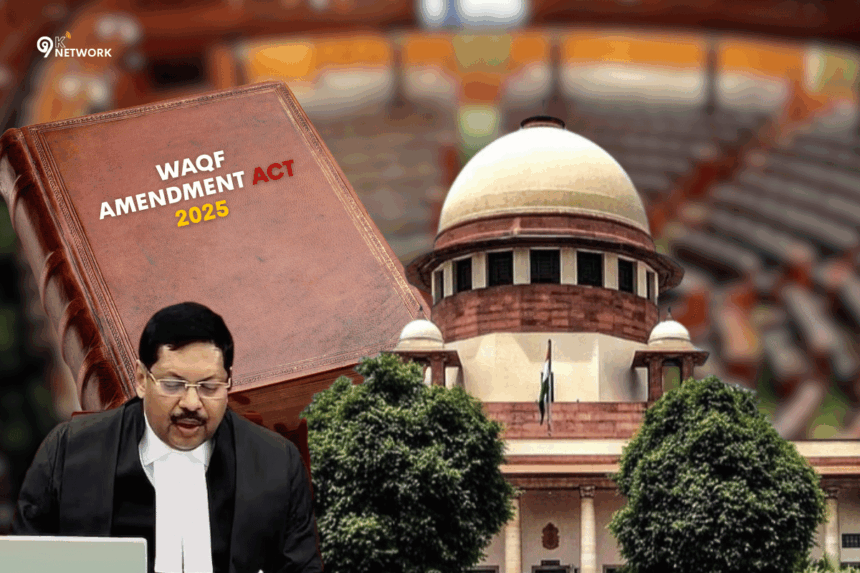In a significant development, the Supreme Court of India has put a temporary stay on certain provisions of the Waqf Amendment Act 2025. The Court clarified that while controversial clauses will remain on hold, the requirement for registration of waqf properties continues without interference.
This ruling comes after multiple petitions challenged the Act, arguing that some provisions were discriminatory and unconstitutional.
What Was Stayed?
The Supreme Court specifically stayed:
- Five-Year Islamic Practice Clause – The condition that only those who had been practicing Islam for at least five years could create a waqf was suspended.
- Collector’s Power to Decide Disputes – The provision that authorised district collectors to decide waqf-related disputes has also been stayed.
These stays will remain until further hearings and final adjudication by the Court.
What Remains Intact?
The Court made it clear that the requirement of registration of waqf properties is unaffected. Individuals and organisations must continue to follow the existing registration process for any new waqf creation.
Why Was the Stay Granted?
Petitioners argued that the new conditions:
- Restricted religious freedom by imposing arbitrary eligibility criteria.
- Gave administrative authorities excessive powers, undermining judicial oversight.
- Were inconsistent with constitutional guarantees of equality and religious practice.
The Supreme Court acknowledged these concerns, finding prima facie merit in the arguments, which led to the interim stay.
Implications of the Ruling
- For Waqf Boards: They cannot enforce the stayed provisions until the case is finally resolved.
- For Individuals & Organisations: Registration obligations remain, but restrictions on eligibility and collector-driven dispute resolution are not in force.
- For Legal Landscape: This signals judicial caution against provisions that potentially infringe fundamental rights.
The matter will be heard in detail in the coming weeks. The government has been asked to respond, and the Court will examine the constitutional validity of the provisions before passing a final judgment.
Until then, the stayed provisions have no effect, but compliance with registration rules is mandatory.
The Supreme Court’s intervention provides temporary relief to petitioners challenging the Waqf Amendment Act 2025. By striking a balance between protecting fundamental rights and maintaining regulatory oversight, the Court has ensured that the most controversial aspects are paused, while core requirements like registration remain operational.
This ruling is expected to set the stage for a much larger debate on religious freedoms, administrative powers, and the role of the judiciary in safeguarding constitutional principles.















